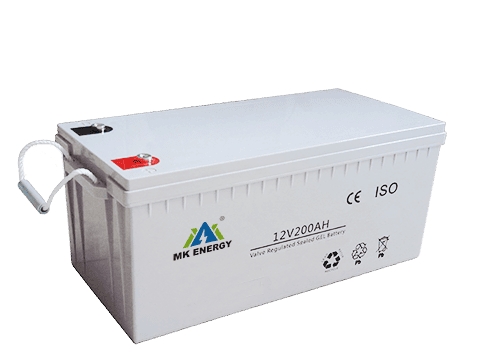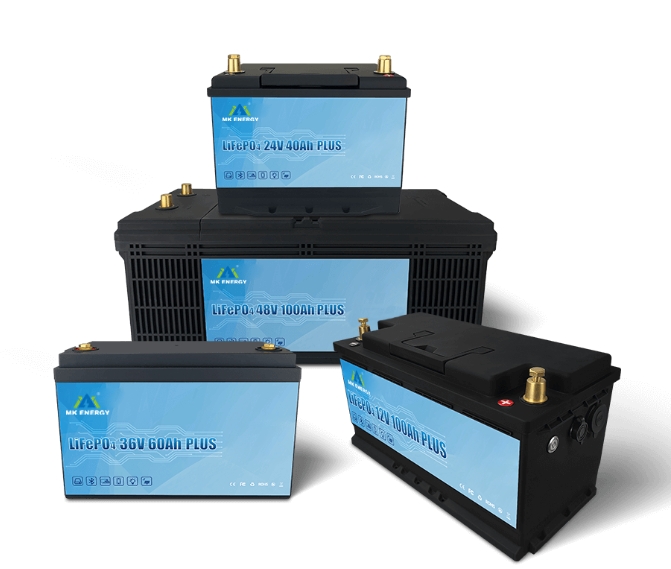Baterías de almacenamiento de energía play a vital role in powering various devices and systems. Of course, there are batteries with different performance and specifications. In this blog post, we will introduce you to the main differences between deep cycle battery and regular batteries to help users and consumers decide when choosing a battery that suits their needs.
Deep cycle battery: designed for long-term, slow discharge
Deep cycle batteries are designed for long and slow discharge applications, unlike regular batteries used to start engines or provide short bursts of power. They are engineered to withstand repeated charge and discharge cycles without significant performance degradation, making them ideal for renewable energy storage systems, RVs, golf carts, and off-grid installations. Unlike shallow-cycle batteries, which prioritize high bursts of power, deep-cycle batteries emphasize sustained, stable power delivery over more extended periods. They typically have thicker plates and denser active materials, allowing them to withstand deep discharges without affecting their service life.
Regular battery: Optimized for short-term, high-power needs
Standard regular batteries are lithium-ion batteries with high energy and power densities, allowing for compact, lightweight designs while delivering impressive performance. These batteries utilize lithium compounds as electrolytes and cathode materials, enabling rapid ion movement and efficient energy transfer during charge and discharge cycles. Lead-acid batteries are another conventional battery type often used in short-term, high-power applications, especially in automotive and industrial environments. Lead-acid batteries have high surge current capabilities, making them ideal for starting, lighting and ignition (SLI) applications in vehicles, as well as backup power and emergency lighting systems. These batteries use lead dioxide as the positive electrode. Sponge lead is the negative electrode, and sulfuric acid is the electrolyte that releases energy and charges quickly.
Different Chemistry and Structure Between Deep Cycle Battery and Regular Batteries
Structurally, deep cycle batteries have a rugged construction with thicker plates and separators to withstand repeated charge and discharge cycles. These boards have a higher lead content and can provide consistent and reliable power over long periods. Additionally, regular batteries may have thinner plates and less robust structures optimized for short-term high-power demands. Typically, manufacturers design them for shallow discharge cycles, and deep discharges may affect performance or service life.
In addition, from the perspective of electrolyte composition, deep-cycle batteries usually use liquid electrolyte solutions, such as sulfuric acid, which can carry out effective ion movement and electrochemical reactions inside the battery. Users can replenish or top off this liquid electrolyte to maintain optimal battery performance. Regular batteries can also use liquid electrolytes, with different formulations optimized for specific performance characteristics. Some regular batteries may have a sealed design with a gel or absorbed glass mat (AGM) electrolyte to minimize maintenance requirements and increase safety.
Deep cycle battery have different cycle life and durability than regular batteries
There are significant differences in cycle life and durability between deep-cycle and regular batteries due to differences in chemical composition, structural design, and expected usage patterns. Deep cycle batteries are designed to withstand hundreds or even thousands of charge and discharge cycles without significant degradation. Their rugged construction, thicker plates, and optimized electrolyte formula allow them to withstand deep discharges and repeated cycling without compromising performance or longevity. In contrast, manufacturers typically optimize regular batteries for shorter high-power discharge cycles, which may limit their cycle life compared to deep cycle batteries.
The durability of deep cycle batteries makes them suitable for demanding applications that require continuous and reliable power over long periods of time. Their rugged construction, thicker plates, and specialized electrolyte formulation make them ideal for off-grid, renewable energy, and RV applications where deep cycling and long-term reliability are critical. Ordinary batteries may be too durable relative to deep cycle batteries and are more susceptible to damage or premature failure when deeply discharged or cycled frequently. Their boards have a thinner construction and are less robust, limiting their suitability for applications requiring continuous power or deep cycling.
Charging and maintenance requirements
Deep cycle batteries require only occasional maintenance, such as replenishing electrolyte levels or equalizing charging, to ensure optimal performance and longevity. However, modern deep-cycle batteries typically feature sealed designs and maintenance-free operation, minimizing the need for regular maintenance, whereas conventional batteries depend on their design and electrolyte composition. Flooded lead-acid batteries may require periodic electrolyte replenishment, while sealed lead-acid batteries (AGM, Gel) offer maintenance-free operation without checking or replenishing the electrolyte.
Choose according to different scenarios
The choice between deep cycle batteries and regular batteries depends on your specific requirements and usage scenarios. Deep cycle batteries may be the best choice if you need reliable power for continuous, long-term use in applications such as renewable energy systems or electric vehicles. A regular battery may be more suitable if you need instant power to start your engine or power intermittent loads.


